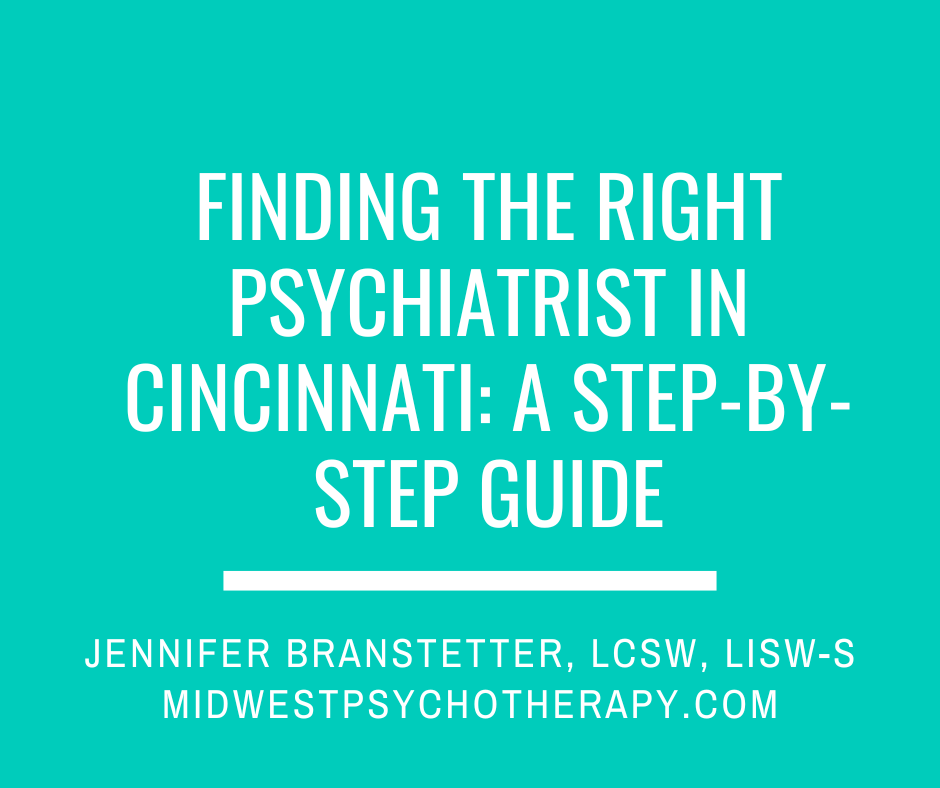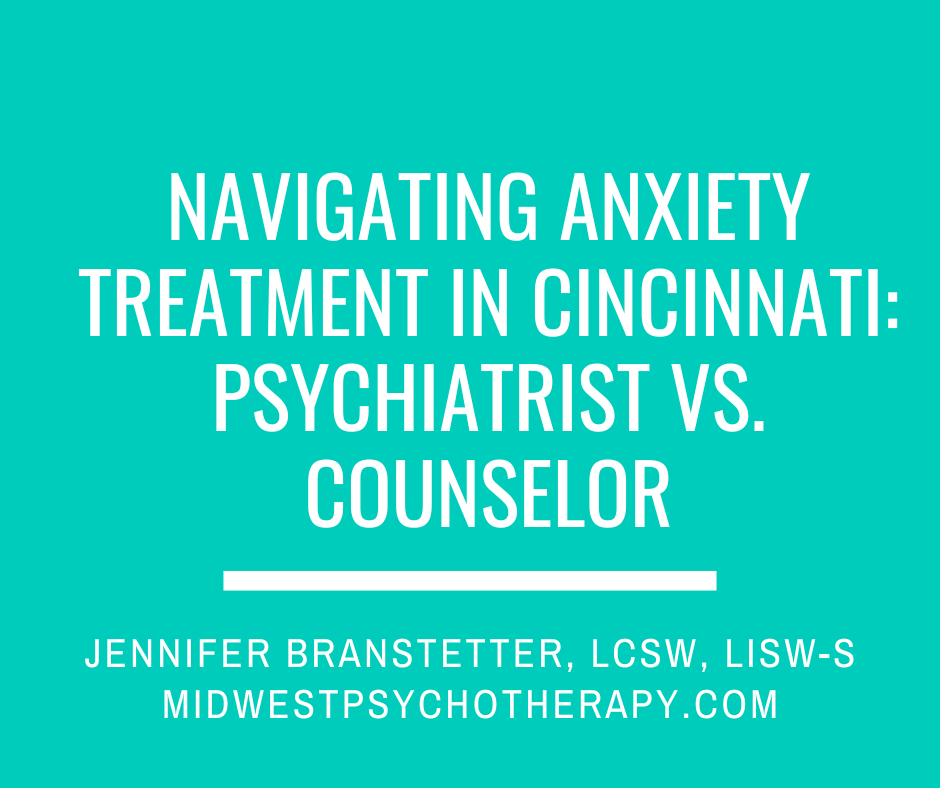Blog

Embracing the Breakdown: Finding Growth Amidst Stress with Your Anxiety Therapist in Cincinnati
Having a mental breakdown can feel scary and defeating. It’s truly awful to experience. But I want to share some of the good things that can come from completely losing it.

Finding the Right Psychiatrist in Cincinnati: A Step-by-Step Guide
Do you want to see a psychiatrist, but don’t know where to look? This is how I help clients find a psychiatrist and schedule an appointment.

Navigating Anxiety Treatment in Cincinnati: Do I need a Psychiatrist vs. Counselor?
How to decide whether you need a psychiatrist or counselor to help with anxiety or depression.